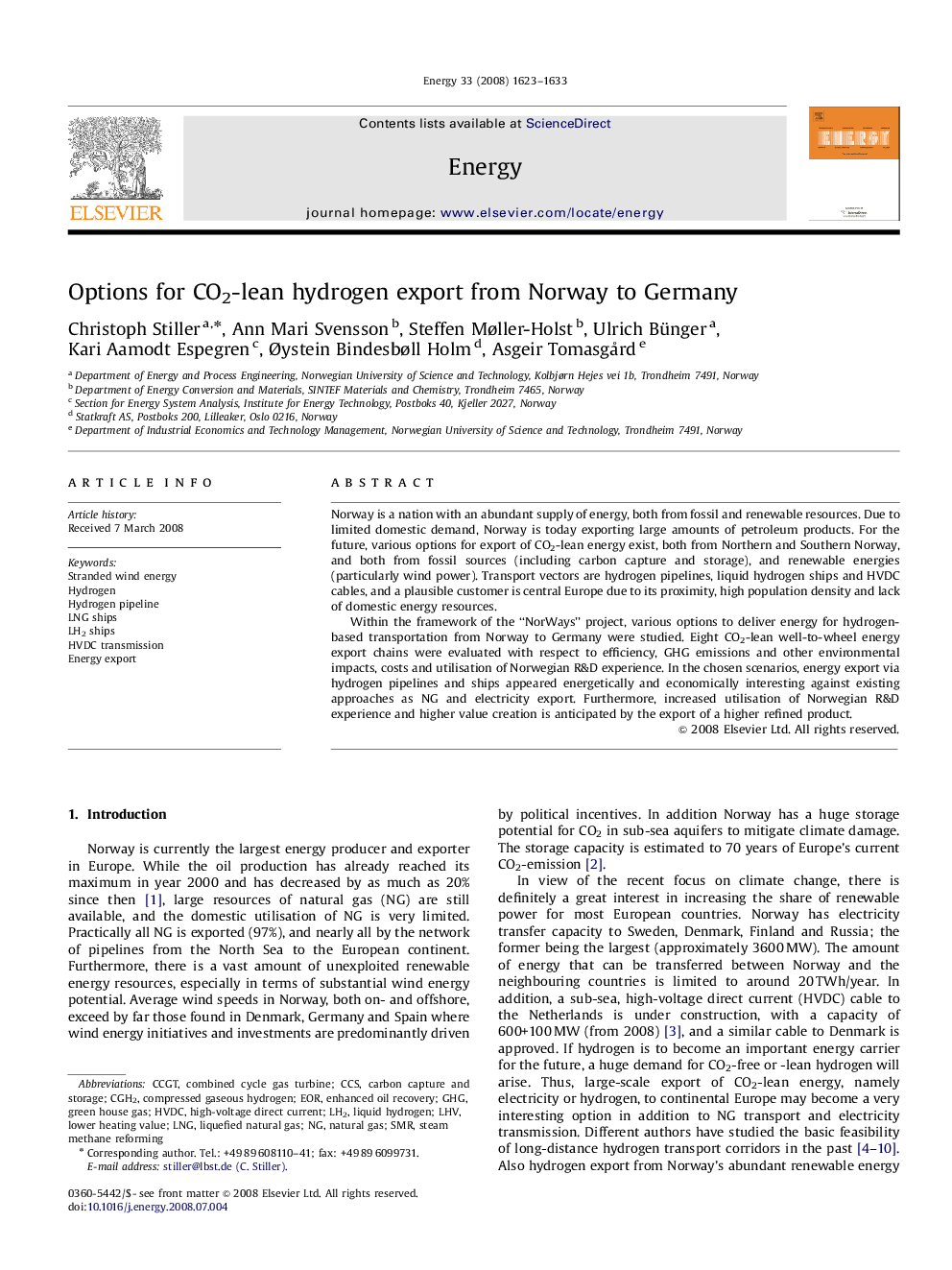| Article ID | Journal | Published Year | Pages | File Type |
|---|---|---|---|---|
| 1736002 | Energy | 2008 | 11 Pages |
Norway is a nation with an abundant supply of energy, both from fossil and renewable resources. Due to limited domestic demand, Norway is today exporting large amounts of petroleum products. For the future, various options for export of CO2-lean energy exist, both from Northern and Southern Norway, and both from fossil sources (including carbon capture and storage), and renewable energies (particularly wind power). Transport vectors are hydrogen pipelines, liquid hydrogen ships and HVDC cables, and a plausible customer is central Europe due to its proximity, high population density and lack of domestic energy resources.Within the framework of the “NorWays” project, various options to deliver energy for hydrogen-based transportation from Norway to Germany were studied. Eight CO2-lean well-to-wheel energy export chains were evaluated with respect to efficiency, GHG emissions and other environmental impacts, costs and utilisation of Norwegian R&D experience. In the chosen scenarios, energy export via hydrogen pipelines and ships appeared energetically and economically interesting against existing approaches as NG and electricity export. Furthermore, increased utilisation of Norwegian R&D experience and higher value creation is anticipated by the export of a higher refined product.
